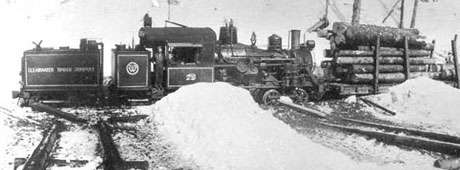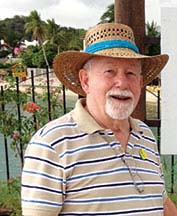No products in the cart.
The Ice Pond

A Hard Life, but Good
By Dean Clark
I was forbidden to climb on our first house in Idaho, a tarpaper shack across the meadow from where Dad worked at Clearwater Timber Protective Association (CTPA) near Headquarters. The house consisted of a framework much like a large, garden shed with a low, flat, board roof sloping nearly to the ground in back and covered with tarpaper for waterproofing. The board siding was also covered with tarpaper secured by thin wooden strips. There was one layer of unsealed boards on the floor, and even with throw rugs it could be drafty at times.
We had two small bedrooms, one for my sister Ardath Jean and one for my parents. I slept on a studio couch in the combination living room/kitchen. There was no inside plumbing and no electricity. Water was carried in a bucket from a spring about three hundred feet away for drinking or poured into the reservoir of the wood burning kitchen range used for cooking and other household needs. The outhouse was a two-holer about fifty feet from the kitchen door, our only door. Lighting was by kerosene lanterns. Of course, there was no refrigeration. Any perishable food was put in a submerged, covered box out at the spring, appropriately called a spring box.
A dirt road led to the tarpaper shack during the summer, but in the winter we waded through an average six feet of snow across the meadow on foot, climbed over Reeds Creek on a perilous, abandoned railroad bridgework, and then waded in snow for another two hundred yards to our car parked near the public road. I never had to wonder why my mother was less than thrilled with our new house. We lived in the tarpaper shack for two winters and three summers.
This content is available for purchase. Please select from available options.
Purchase Only
Purchase Only

